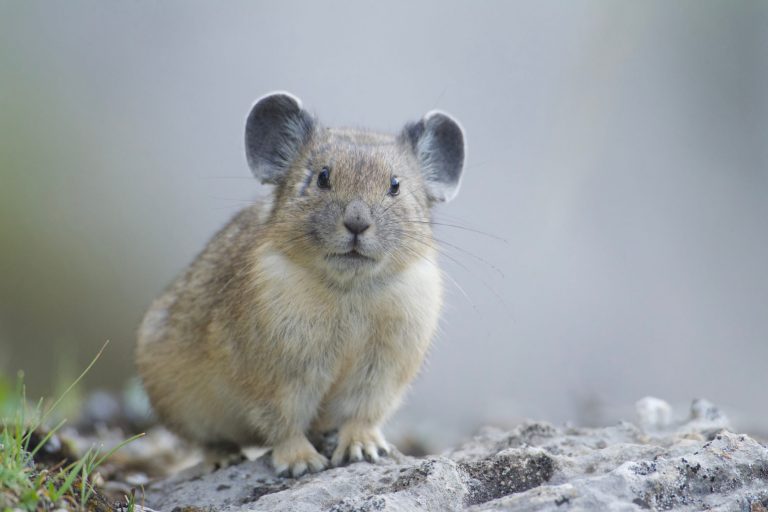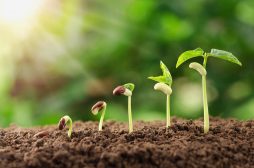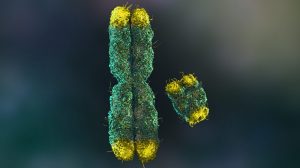Indicator Species and Endangered Species

Pikas are an indicator species for climate change
Table of Contents
Indicator Species
Certain species are capable of expressing characteristics that can indicate the state of the ecosystem they currently occupy. These species that can leave clues about the state of the ecosystem are known as indicator species, because they indicate the state of the local environment.
Biston betularia, otherwise known as peppered moth, is a species that can adapt to polluted environments more suitable as a result of an adaptation changing the color of them to suit their environment, as explained in the Natural Selection of the Genetics tutorials. Consider the following;
- A higher frequency of the light peppered moth would indicate that there is little pollution in the local environment
- A higher frequency of the dark peppered moth would indicated that there is high pollution in the local environment
- A decrease in light peppered moths’ population may suggest that pollution is beginning to accumulate in the area.
In light of this, various species exhibit characteristics that give us insight into the local environment without having to study the local environment itself. In the case of the peppered moth being an indicator species, the presence of pollution (and dark moth) would indicate that additional abiotic stress is being placed on the organisms who live in that polluted (and usually less favorable) environment.
Endangered Species
When the last of a species dies out, the gene pool of the species is lost forever. To protect species, we must monitor their population levels. If one species dies out, those who rely on it in one way or another (i.e. protection or food) will also be affected. In light of this, humans aim to preserve genetic diversity and the diversity of species alive today.
The Green Movement
Modern social values have led us to recognize the damage we have done to the environment and the species that occupy it. In light of this, government legislation is bound to environmental measures to prevent further damage to the environment. Green belts have also been established outside major cities, where no buildings can be erected. These green belts are basically segments of the countryside that are preserved to ‘compensate’ the local environment for all the man-made interference that results from urban areas.
Ecosystem Succession
If the balance of nature is left untouched, landscapes can change dramatically over time, where a previous ecosystem is superseded by the arrival of a newer ecosystem. This is known as ecosystem succession, and is elaborated upon in the next tutorial.
You will also like...

Abiotic and Biotic Factors
This tutorial deals with the abiotic factors of the freshwater environment that determine what sort of life would be sui..

Lights’ Effect on Growth
This tutorial elaborates on the effect of light on plant growth. It describes how different plants require different amo..

Genetic Engineering Advantages & Disadvantages
This tutorial presents the benefits and the possible adverse eventualities of genetic engineering. Know more about this ..

Chromosomes X and Y and Sex Determination
This tutorial looks at sex determination via the sex chromosomes, X and Y. Read it to get more info on X and Y chromosom..

Origins of Life on Earth
Earth was created around 4.5 billion years ago and life began not long after. Primitive life likely possessed the elemen..

Genetics – Lesson Outline & Worksheets
Topics Modules Quizzes/Worksheets Description Introduction to Genetics Genetics – Definition: Heredity and ..
